Lora Steiner
lsteiner@mosaicmennonites.org
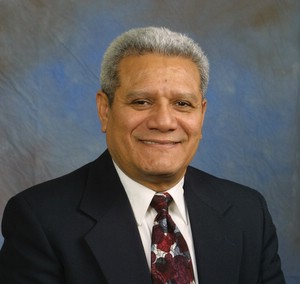 When Gilberto Flores first began working with the Mennonite Church in Guatemala, he didn’t imagine that he would one day be called to work with churches in the United States.
When Gilberto Flores first began working with the Mennonite Church in Guatemala, he didn’t imagine that he would one day be called to work with churches in the United States.
“Walking with God as a pilgrim is always the most unpredictable way to get what is predictable,” says Gilberto, who will be the keynote speaker at this fall’s Conference Assembly Gathered.
Gilberto, who presently serves as a denominational minister for Mennonite Church USA (MCUSA), first began pastoring in his native Guatemala and eventually became the president of the Guatemalan Mennonite Church. He also served as the dean at Semilla, an Anabaptist seminary located in Guatemala City, before moving to the United States to help start a Mennonite congregation in San Antonio, Texas, in 1993. It was his work with the Texas congregation that led him to become more involved in the United States on a denominational level.
In 1996, the Commission on Home Ministries of the General Conference Mennonite Church invited Gilberto to serve as director for two prog-
rams, Hispanic Resource Ministries and Anabaptist Biblical Institute. When MCUSA was formed, he continued on as a denominational minister.
Gilberto’s work with MCUSA is two-fold: he works as the director for missional church advancement, and helps to connect MCUSA with other Mennonite agencies.
“My work is to be a connector,” says Gilberto, “to promote, stimulate, and inspire congregations and conferences, leadership and staff to become more open, aware, and engaged with the missional church identity.”
Gilberto’s passion for a missional and multicultural church will be the focus of his meditation for Assembly Gathered, to be held at Franconia Mennonite Church on Nov. 9-10. Gilberto will speak from the text of Acts 11:19-26 on the theme for this year, “Embracing God’s Mission.”
“I hope that what I will share will move people to see the conference and congregations with more openness and awareness of the challenges and the conflicts with a missional perspective,” says Gilberto.
“Gilberto brings a depth of wisdom, insight, and experience to his work as denominational minister,” says Conference Executive Minister Noel Santiago. “From his journey in Guatemala establishing, growing, and pastoring an Anabaptist congregation of 800-plus members, to engaging the powers with a persistent, prophetic word, Gilberto has experienced the joys and struggles of God’s people seeking to be missional in a variety of contexts. Gilberto’s theological training and formation, allows him to also bring a message that challenges us to consider anew the power behind the Anabaptist movement and history as a transformative vehicle not only for the church, but for the world.”
When Gilberto isn’t working, he enjoys carpentry, reading and spending time with his wife, children, and grandchildren. Gilberto and his wife, Rosa, are the parents of four adult children and the grandparents of three. They are members of First Mennonite Church in Newton, Kansas, and reside in nearby Hesston.


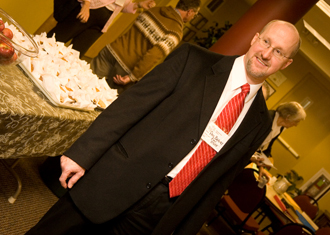 Phil Bergey
Phil Bergey Thank you for calling me, being patient with me, teaching me, and allowing me to lead among you. I will forever be thankful for the experiences and lessons that have taught me to have hope in the midst of much change in our world. I trust that you will also walk, teach and learn similarly with our brother Noel Santiago as he begins to lead our wonderful conference. To God be the glory.
Thank you for calling me, being patient with me, teaching me, and allowing me to lead among you. I will forever be thankful for the experiences and lessons that have taught me to have hope in the midst of much change in our world. I trust that you will also walk, teach and learn similarly with our brother Noel Santiago as he begins to lead our wonderful conference. To God be the glory.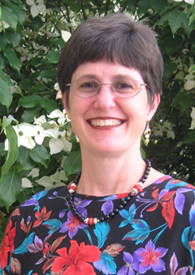 My father, both grandfathers, and one grandmother were gardeners. Dad grew a kind of cherry tomato that he really liked. He saved seeds from those tomatoes year to year to continue that particular line. When my gardening genes kicked in after I was married and I began to dig in the dirt, Dad gave me some of those seeds. Twenty years later, I still grow tomatoes from that lineage.
My father, both grandfathers, and one grandmother were gardeners. Dad grew a kind of cherry tomato that he really liked. He saved seeds from those tomatoes year to year to continue that particular line. When my gardening genes kicked in after I was married and I began to dig in the dirt, Dad gave me some of those seeds. Twenty years later, I still grow tomatoes from that lineage.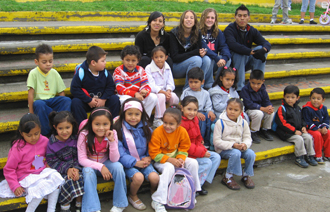 Note from Rockhill Youth Pastor, Angela Moyer: For a week in July, 22 youth and adults from Rockhill Mennonite Church headed to Mexico City, Mexico to serve with four CIEAMM (Mexico Mennonite Conference) churches. The group, split into four different teams, serving the following congregations: Seguidores de Cristo, Pueblo en Transformacion, El Buen Pastor, and Cuatro Vientos.
Note from Rockhill Youth Pastor, Angela Moyer: For a week in July, 22 youth and adults from Rockhill Mennonite Church headed to Mexico City, Mexico to serve with four CIEAMM (Mexico Mennonite Conference) churches. The group, split into four different teams, serving the following congregations: Seguidores de Cristo, Pueblo en Transformacion, El Buen Pastor, and Cuatro Vientos.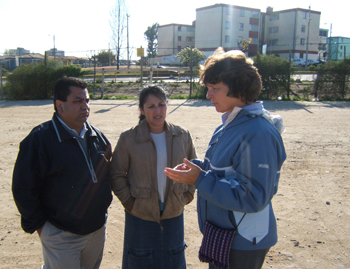 Puerta Abierta may be the only outreach of its kind in Chile. The opportunities for helping and sharing Christ’s love with brothers and sisters who need spiritual, physical, and emotional encouragement seem endless. In sending us to build relationships with these Chilean churches, Franconia Conference knew few specifics of this Puerta Abierta project. They knew nothing about Samuel’s gray coat. But they knew that God works wonders when we open our own hearts, minds and doors to the Spirit.
Puerta Abierta may be the only outreach of its kind in Chile. The opportunities for helping and sharing Christ’s love with brothers and sisters who need spiritual, physical, and emotional encouragement seem endless. In sending us to build relationships with these Chilean churches, Franconia Conference knew few specifics of this Puerta Abierta project. They knew nothing about Samuel’s gray coat. But they knew that God works wonders when we open our own hearts, minds and doors to the Spirit.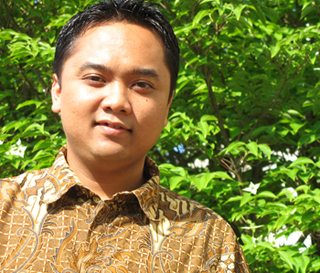 I feel that being part of a congregation is not enough. I truly believe with the Mennonite perspective that we need to serve God more according to the gifts and calling that he has instilled in us. I am very grateful for Philadelphia Praise Center’s support of my becoming a licensed minister. A license for me is a public recognition that I am a minster of the Gospel. A minster is an example and a representative of God on this earth. I have a public responsibility to carry my life carefully as people watch me walk the gospel of Jesus Christ. Commissioned by God to help and serve the congregation to become closer to Jesus. This is not to promote self but to promote Jesus Christ with all that we have.
I feel that being part of a congregation is not enough. I truly believe with the Mennonite perspective that we need to serve God more according to the gifts and calling that he has instilled in us. I am very grateful for Philadelphia Praise Center’s support of my becoming a licensed minister. A license for me is a public recognition that I am a minster of the Gospel. A minster is an example and a representative of God on this earth. I have a public responsibility to carry my life carefully as people watch me walk the gospel of Jesus Christ. Commissioned by God to help and serve the congregation to become closer to Jesus. This is not to promote self but to promote Jesus Christ with all that we have.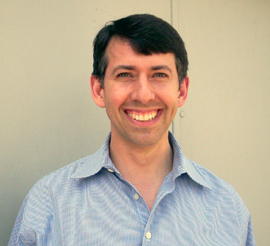 There I stood trying to find a DVD to borrow from our public library when I overhead a conversation between two library workers about God and church.
There I stood trying to find a DVD to borrow from our public library when I overhead a conversation between two library workers about God and church.